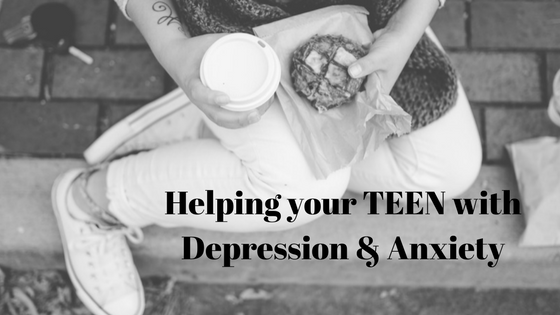Do you remember being a teenager?
Do you remember having to push yourself to be social?
Do you remember the awkward moments at the lunch line or walking into a classroom and thinking where do I sit?
Do you remember not understanding yourself?
Feeling different?
In the Teen Therapy Group, we help teens improve their self-confidence and self-esteem, build healthy communication skills, and develop coping skills that support addressing difficulties in life.
6 teens are able to sit together and discuss their mental health concerns.
As the teen counselor, I provide participants with the following.:
1. A place to feel at ease and relaxed.
This is by far one of the most important aspects of the group. I find that if we are in a location that does not feel like home or comfortable, we will not be at ease and will struggle to truly share how we feel.
2. Coping skills to overcome depression
Depression is a mental health disorder that can be seen when someone experiences sadness more days than not, problems focusing and concentrating, lethargy, a lack of interest in previously pleasurable activities, low self-image or self-esteem, potential suicidal thoughts, negative thoughts, and/or irregular changes to sleep and appetite.
Physical symptoms of Depression your teen may experience include.:
- Crying
- Muscle tension
- Low energy
- Mind going blank
3. Coping skills to overcome anxiety
Generalized Anxiety Disorder is a mental health disorder that can be seen when someone experiences worry or nervousness, indecisiveness, overthinking, difficulty relaxing, problems focusing and concentrating, a lack of interest for previously pleasurable activities, and/or irregular changes to sleep and appetite.
Physical symptoms of Anxiety include.:
- Fatigue
- Hand tremors
- Sweating
- Stomach aches or nausea
- Restlessness
- Muscle aches or muscle tension
I want to encourage teens to remember empathy, mindfulness, and grit. Utilize these skills as often as needed. Mindfulness is the practice of awareness. When one is able to understand that they are exhausted from work or school and require a break, they are practicing mindfulness. I find that in the life we live, we often put our personal needs second. We often tire from work or school and continue pushing forward as if the human body did not require a break or moment of silence.
As you challenge your mental condition, I want to encourage you to practice mindfulness as a tool of bringing attention to what’s happening around you. In my experience, I practiced mindfulness by understanding that I too need breaks. That I needed to make sure to exercise more days than not. In my opinion, the practice of mindfulness allows a person to feel balanced in life versus being forcefully pulled in directions. When one does not feel balanced, one may experience physiological or psychological pain.
Empathy means that one is able to find it in their heart to understand what the other person is going through. As a professional counselor, I find that empathy starts when we make the conscious choice to take our shoes off and put on theirs. Empathy is when a parent seeks to see with the eyes of their teen. Or to feel with the heart of the person asking for support.
Grit was taught to me at a very young age. An age where I honestly did not truly comprehend its complexity. Grit is when you understand that the mental health challenge you are facing requires you to have courage, confidence, commitment, and willpower to continue on. I first learned grit as an adolescent. I wanted to quit my soccer team. My mother reminded me that I made the choice to play and to commit my time and skill to the team. This was my first taste of grit and I am thankful to have continued the practice.
As you continue supporting your teen with anxiety and depression, take time to shed light on empathy, grit and mindfulness.
When should your teen see a counselor?
Certain levels of anxiety or sadness can be normal. For instance, if you are about to give a speech to a massive audience, you may find yourself experiencing hand tremors or a slight stomach ache.
However, when you experience the following symptoms, it’s recommended to seek a counselor.:
- If you experience suicidal thoughts.
- If your anxiety or depression is impacting your ability to work. This can be noted if you can’t concentrate at work and have noticed a decline in your performance.
- If you are using drugs or alcohol to manage the anxiety or depression symptoms.
- If you feel that you are worrying too much.
- If you are experiencing panic or anxiety attacks.
- If you do not know how to support your teen and would like recommendations.
- If you notice that the anxiety or depression is not going away.
As you are reading over the symptoms, I like to welcome you to reach out for concerns. If you are unsure about counseling or if your teen needs support, please email me at ([email protected]). I’ll gladly go over your concerns and do my best to lead you in the right direction.




